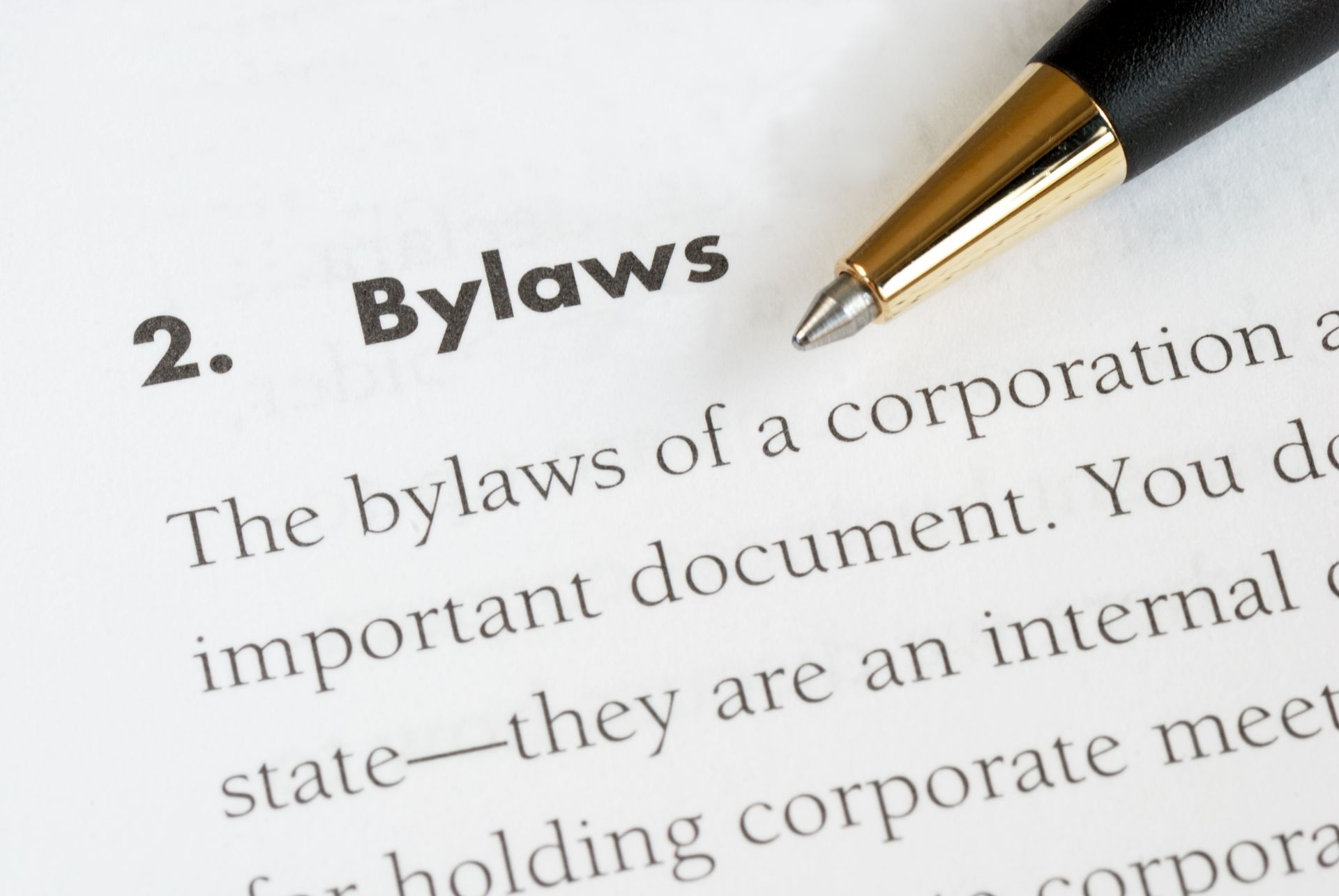Blog

Nonprofit bylaws are more than just a formality. They serve as the organization’s internal constitution. From outlining how board decisions are made to establishing procedures for resolving disputes, well-drafted bylaws can protect your mission, improve accountability, and reduce legal risk.
Too often, bylaws are written quickly during formation and never revisited. Outdated, vague, or overly generic bylaws can create problems during audits, grant applications, board conflicts, or leadership transitions.
Current Georgia nonprofit leaders and aspiring nonprofit founders should approach drafting and modifying bylaws with caution. While a boilerplate approach may be appealing, it won’t always provide the best long-term protection.
What Nonprofit Bylaws Should Include
Board Composition and Terms
Your bylaws should clearly state how many board members your organization will have, how long they serve, how they’re selected, and whether they can be re-elected or reappointed. This section is especially important when applying for grants or during leadership transitions.
Duties and Authority of Officers
Nonprofits must outline the roles and responsibilities of officers such as the President, Secretary, and Treasurer. This helps avoid confusion about who’s authorized to act on behalf of the organization and ensures internal controls are in place.
Meeting and Voting Procedures
Bylaws should describe how often the board meets, how notice is given, what constitutes a quorum, and how votes are taken. These rules help ensure decisions are made properly and can stand up to legal scrutiny if challenged.
Conflict of Interest Policy Reference
While the full policy may be a separate document, most bylaws include a reference to a conflict of interest policy or embed basic rules directly. This helps maintain public trust and IRS compliance.
Amendment Procedures
Your bylaws must include a clear process for making changes. This typically entails notice and a supermajority vote. Without clear amendment procedures, your organization may face legal roadblocks when updates are needed.
Indemnification and Liability Protections
It’s standard to include language that protects board members from personal liability when acting in good faith within the scope of their duties. Indemnification is key for encouraging board participation. Nonprofits without clear and strong liability protections for board members may have difficulty recruiting qualified leaders in the future.
Are Boilerplate Bylaws Good Enough for New Nonprofits?
It’s tempting to grab a template online, plug in your organization’s name, and move on. While free or low-cost boilerplate documents can provide a starting point, most generic bylaws aren’t tailored to Georgia law, or to the unique structure and mission of your nonprofit.
For example, Georgia has specific requirements around board composition, fiduciary duties, and charitable solicitation laws that may not be reflected in national templates. Bylaws that conflict with state law or IRS expectations can create problems during incorporation, annual filings, or audits.
If your nonprofit is just getting started, it may be worth having an attorney review your bylaws, even if you’re using a standard template. A one-time review can help to avoid future complications and ensure your governing documents support your long-term goals and won’t leave you vulnerable to claims.
When and How to Update Your Bylaws
Bylaws shouldn’t be treated as a one-and-done document. As your nonprofit grows, expands programs, or undergoes leadership changes, you’ll likely need to revisit them. Common reasons for updating bylaws include:
- A shift in board size or term limits
- Expansion into new states or service areas
- Major changes in fundraising models or tax reporting obligations
- Adoption of new governance policies or procedures
Bylaws should contain a section outlining how amendments are made. In most cases, changes require written notice and a supermajority vote of the board. For nonprofits with voting members, member approval may also be required.
Working with outside general counsel during this process helps ensure updates don’t accidentally conflict with existing policies, state law, or IRS rules.
Get Legal Support for Your Atlanta Nonprofit Bylaws
The Law Office of Cameron Hawkins works with nonprofits across the Atlanta area to review, update, and draft legally sound bylaws. Whether you're forming a new organization or reviewing your governance practices, our goal is to help you build a clear and protective legal foundation.
If your organization isn’t sure whether your governing documents still reflect your mission, operations, and legal obligations, it may be time for a professional review.
Call the Law Office of Cameron Hawkins at (678) 921-4225 to schedule a consultation and make sure your nonprofit’s bylaws are helping, not hurting, your organization.











